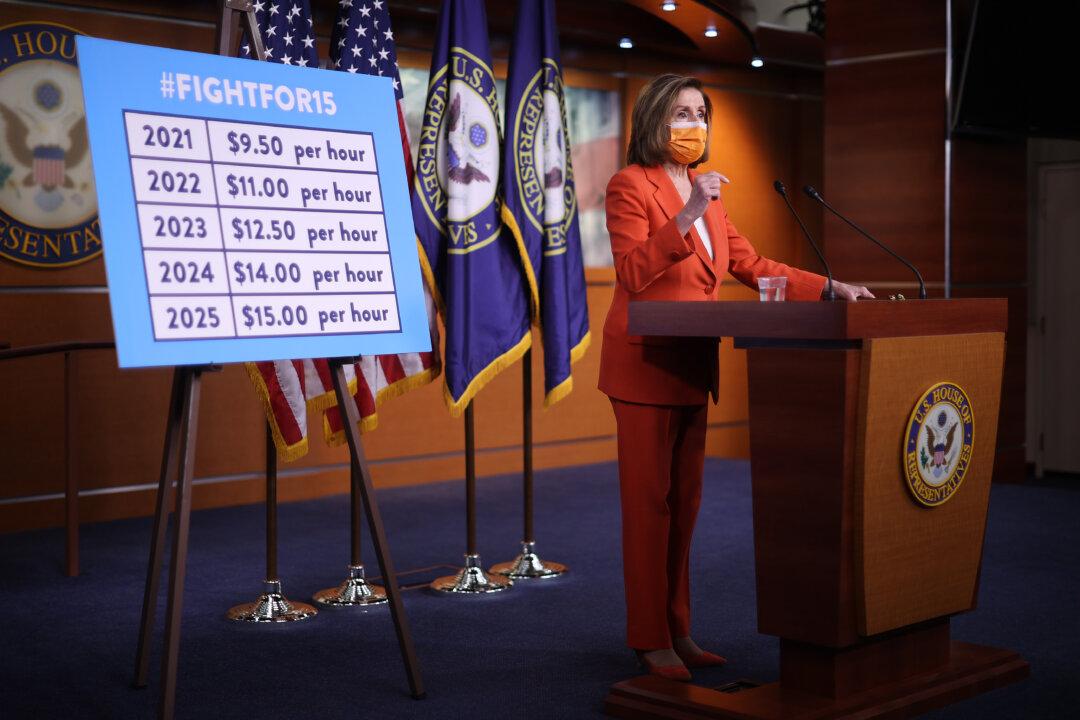WASHINGTON—House Speaker Nancy Pelosi (D-Calif.) said on March 11 that Democrats would continue to fight for raising the national minimum wage to $15 per hour following a failed attempt to include it in President Joe Biden’s economic rescue plan.
Senate Democrats removed the proposal to raise the minimum wage from the rescue plan, after the Senate parliamentarian on Feb. 25 ruled that the provision wasn’t eligible to be included in the relief bill.





